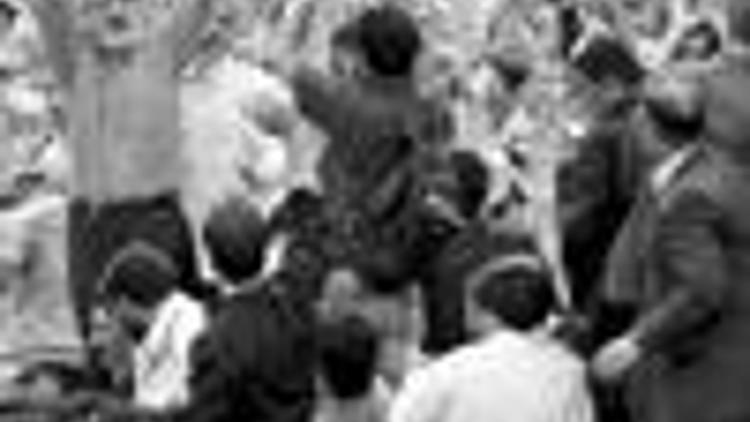Vote count speed fuels doubt in Iran
Güncelleme Tarihi:

CAIRO - While Iran’s hard-line president insists the results of elections are legimate, the pace of the vote count, coupled with a lack of detailed data raise serious concerns over the legitimacy of the vote, reinforcing suspicions of the opposition
How do you count almost 40 million handwritten paper ballots in a matter of hours and declare a winner? That's a key question in Iran's disputed presidential election. International polling experts and Iran analysts said the speed of the vote count, coupled with a lack of detailed election data normally released by officials, was fueling suspicion around President Mahmoud Ahmadinejad's landslide victory.
Iran's supreme leader endorsed the hard-line president's re-election the morning after Friday's vote, calling it a "divine assessment" and appearing to close the door on challenges from Iran's reformist camp. But on Monday, after two days of rioting in the streets, he ordered an investigation into the allegations of fraud. And on Tuesday, the country’s top election watchdog said it might conduct a limited recount. Mir Hossein Mousavi, Ahmadinejad's reformist challenger, claims he was robbed of the presidency and has called for the results to be canceled.
Long allegations list
Mousavi's newspaper, Kalemeh Sabz, or the Green Word, reported on its Web site that more than 10 million votes were missing national identification numbers similar to U.S. Social Security numbers, which make the votes "untraceable." Mousavi said some polling stations closed early with voters still in line, and he charged that representatives of his campaign were expelled from polling centers even though each candidate was allowed one observer at each location. He has not provided evidence to support the accusations.
His supporters have reported intimidation by security forces who maintained a strong presence around polling stations. Observers who questioned the vote said that at each stage of the counting, results released by the Interior Ministry showed Ahmadinejad ahead of Mousavi by about a 2-1 margin.
The final tally was 62.6 percent of the vote for Ahmadinejad and 33.75 for Mousavi - a landslide victory in a race that was perceived to be much closer. Such a huge margin also went against the expectation that a high turnout would boost Mousavi. "Personally, I think that it is entirely possible that Ahmadinejad received more than 50 percent of the vote," said Konstantin Kosten, an expert on Iran with the Berlin-based German Council of Foreign Relations who spent a year from 2005-06 in Iran.
Iran's electoral system lacks the transparency needed to ensure a fair election, observers said. International monitors are barred from observing Iranian elections and there are no clear mechanisms to accredit domestic observers, said Michael Meyer-Resende, coordinator of the Berlin-based Democracy Reporting International.
One of the central questions was how 39.2 million paper ballots could be counted by hand and final results announced by authorities in Tehran in just over 12 hours. Past elections took at least twice as long. A new computerized system might have helped speed the process in urban centers, where most Iranians live, though it is unclear if that system was extended to every small town and village. "I wouldn't say it's completely impossible," Meyer-Resende said. "In the case of Iran, of course, you wonder with logistical challenges whether they could do it so fast."

